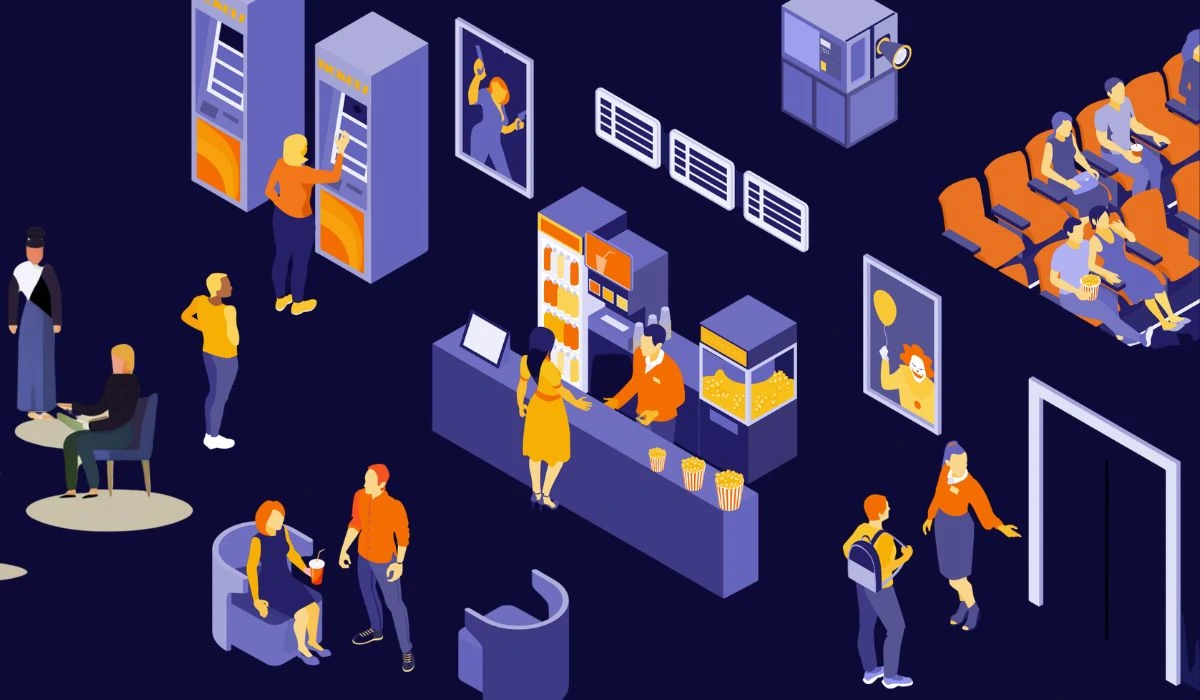As the restaurant sector undergoes ongoing transformation, so are the technologies used to manage it.

The Future of Queue Management Systems

As the restaurant sector undergoes ongoing transformation, so are the technologies used to manage it.
Among the notable advancements in recent times is the widespread adoption of cloud-based restaurant point-of-sale (POS) systems.
Switching to cloud-based restaurant POS system is the most superior POS system option, allowing for a smooth connection with new solutions and effortless expansion of your organization.
While conventional POS systems have been prevalent for many years, cloud-based POS systems present a multitude of advantages that can enhance restaurant operations, improve efficiency, and elevate profitability.

Restaurant POS software streamlines financial report generation, simplifies everyday activities, and lowers errors. It enhances customer service by automating transactions and more effectively resolving concerns.
Through secure authorization processes and accessible transaction records, the program decreases the risk of fraud. Cloud-based POS systems enable remote access, which improves monitoring and management capabilities.
They also make sure that data is secure and that accounting, CRM, inventory, and purchasing modules work together seamlessly.
POS software streamlines sales tracking, allows for menu revisions, and speeds up credit and debit card transactions.
It saves time and effort by streamlining the preparation of profit and loss statements and tax returns. The software helps with labor and inventory management, as well as payroll and ingredient tracking.
Automating tasks frees staff to focus on valuable activities and improves interdepartmental communication and overall efficiency.
A traditional point-of-sale (POS) system operates inside limited networks and maintains data on local servers. It is similar to downloading films rather than viewing them online via OTT services.
A cloud-based POS system, on the other hand, stores and maintains data fully online. All that is required is a live internet connection. Compared to traditional POS systems, cloud-based POS systems have various advantages.
For starters, they make maintenance easier by automatically applying updates, ensuring you have the most recent system version without the need for manual involvement.
Cloud POS systems improve data security by securely storing information online and making it available from anywhere, as well as providing encrypted servers for enhanced security.
They also support offline data entry, which immediately syncs with the cloud when the machine is restarted.
Cloud POS systems provide greater accessibility by allowing owners to see sales data and reports from any device with internet access, independent of their physical location.
Cloud POS systems are hardware-independent and may be accessed via a variety of browsers, offering convenience and flexibility.
Because of its versatility, flawless operations, and suitability for the fast-paced restaurant sector, a cloud-based POS system is recommended.
It provides cost-effectiveness by lowering installation and maintenance costs while maintaining consistent cash flow through monthly subscription payments.
A cloud-based POS system can be accessed from any device connected to the internet. Cloud POS systems provide numerous advantages for restaurants, which include:
POS systems based on cloud technology are specifically developed to optimize restaurant operations and boost productivity.
Cloud-based POS systems can help restaurants decrease order processing times, minimize errors, and improve the overall efficiency of restaurants by including automated inventory management, instantaneous sales data, and automated order routing.
Furthermore, these systems integrate with other restaurant technologies, such as Internet ordering platforms, loyalty programs, and accounting software.
This means that restaurants can easily manage all aspects of their operations from a single, centralized platform, reducing the need to switch between numerous systems.
One of the key benefits of cloud-based POS systems lies in their adaptability and scalability.
In contrast to conventional POS systems which require costly hardware and software installs, cloud-based POS systems work solely on the web and can be accessed from any device with an internet connection.
This indicates that restaurants can effortlessly expand the scale of their POS systems as their business flourishes, without concerns regarding expensive upgrades or installations.
Furthermore, switching to cloud-based restaurant POS systems provides increased flexibility by permitting restaurant owners and managers to connect POS data from any location and at any time.
This allows them to track real-time sales, inventory, and other critical information without having to physically visit the restaurant.
Data security is a key problem for restaurants in today’s digital world. Traditional point-of-sale systems frequently store data locally, leaving them exposed to data breaches and other security concerns.
In contrast, POS systems based on the cloud securely store data in cloud servers, employing sophisticated encryption and security measures to safeguard restaurant data against unauthorized entry.
Additionally, cloud-based POS systems for restaurants provide improved functionalities for data backup and restoration.
In case of system malfunctions or data loss, restaurants can effortlessly recover their data from a cloud-based backup, guaranteeing the continuous protection of vital information.
Switching to a cloud-based restaurant POS system can enhance the customer experience for restaurants.
By incorporating functionalities like mobile ordering and payment, on-table ordering, and seamless integration with loyalty programs, cloud-based POS systems enable restaurants to deliver a smooth and tailored experience to their customers.
Moreover, cloud-based POS systems aid in diminishing wait times and enhancing order precision, ultimately resulting in the satisfaction of the customer.
Migrating to a cloud-based POS system for restaurants can save costs while increasing ROI.
Cloud-based POS solutions often have cheaper upfront costs than traditional POS systems since they do not require costly hardware installs or ongoing maintenance fees.
Furthermore, cloud-based POS systems provide a variety of pricing models, such as pay-as-you-go and subscription-based alternatives, enabling restaurants to select the pricing structure that aligns best with their financial resources.
Cloud-based POS solutions drive ROI improvement through enhanced efficiency, reduced errors, and increased revenues for restaurants, empowering them to leverage real-time sales data and automated inventory management to identify patterns and make data-driven decisions that optimize operations and maximize profitability.
Cloud-based POS systems provide smooth integration in restaurants by being compatible with a wide range of technologies and platforms.
These systems provide a centralized solution for managing numerous areas of restaurant operations due to their ability to interact with online ordering systems, loyalty programs, accounting software, and more.
This connection improves communication between systems, streamlines operations, and assures data consistency across platforms.
Finally, it allows restaurants to run smoothly and efficiently, increasing total productivity and customer happiness.
Cloud-based POS systems are built to work with any device, allowing restaurants to access and use the system from cellphones, tablets, or desktops with internet access.
This device’s versatility allows restaurant employees to take orders, process payments, and manage operations from their preferred devices, increasing ease and mobility.
Furthermore, it eliminates the need for dedicated POS hardware, lowering costs and increasing flexibility in selecting and using suitable devices in the restaurant environment.
Cloud-based POS solutions offer the important benefit of data backup and redundancy.
Loss of vital data or disruptions in on-site utility services can have a significant impact on corporate operations and potentially lead to firm closure.
With a cloud-based POS system, critical processes, reporting, and data storage take place offshore, increasing accessibility across several devices.
Many carriers’ mobile solutions allow transactions to continue even during power outages by using the battery power of smartphones and tablets.
Cloud-based POS technologies allow for remote access, promoting virtual team collaboration, managing many locations, and delivering peace of mind to all parties involved in business operations.
Inventory management across several sites becomes simpler, scheduling may be performed from home or during commutes, and other perks are easily available.
In comparison, using a software-based POS system necessitates manually configuring a VPN, hosting and securing a local server, and employing more time-consuming workarounds, making the cloud-based solution a faster and more convenient option for many.
While your company may not be directly targeted, utilizing the cloud makes you a larger and more appealing target for hackers.
You can keep your data offline with a software-based POS system for greater security, surrendering convenience for added security.
Remember to have backup procedures in place as well as limited technical support from within your organization or your credit card processor in the event of a data breach.
One of the drawbacks of cloud-based POS systems is their dependence on internet connectivity.
If the internet goes down or becomes unreliable, it can disrupt operations and hinder transactions.
Businesses relying on cloud-based POS need to ensure a stable internet connection or have backup measures in place to mitigate this dependency.
Switching to a cloud-based restaurant POS system brings many benefits to food establishments.
By embracing this technological shift, businesses can enhance operational efficiency through streamlined processes, automated inventory management, and integrated reporting.
Cloud-based POS systems ensure seamless scalability, allowing restaurants to expand and adapt to changing demands easily.
By making the switch to ERP and POS software solutions, establishments can optimize their operations, improve customer experiences, and stay competitive in the dynamic restaurant industry.
Great! What’s the single biggest challenge you’d like a software solution to solve for your business? 🎯
💡 Suggested Solution Ideas:
Just one more step! Share your details so our experts can connect with you personally and discuss tailored solutions. 🤝
Thank You for Connecting! 🎉
We've received your information and a specialist will be in touch with you very shortly to discuss how we can help your business thrive.
In the meantime, feel free to browse our resources or reach out if you have immediate questions.
Understood! 🙏
No worries if you're not exploring software solutions right now. Our door is always open if your needs change!
Feel free to explore our other offerings or connect with us anytime.